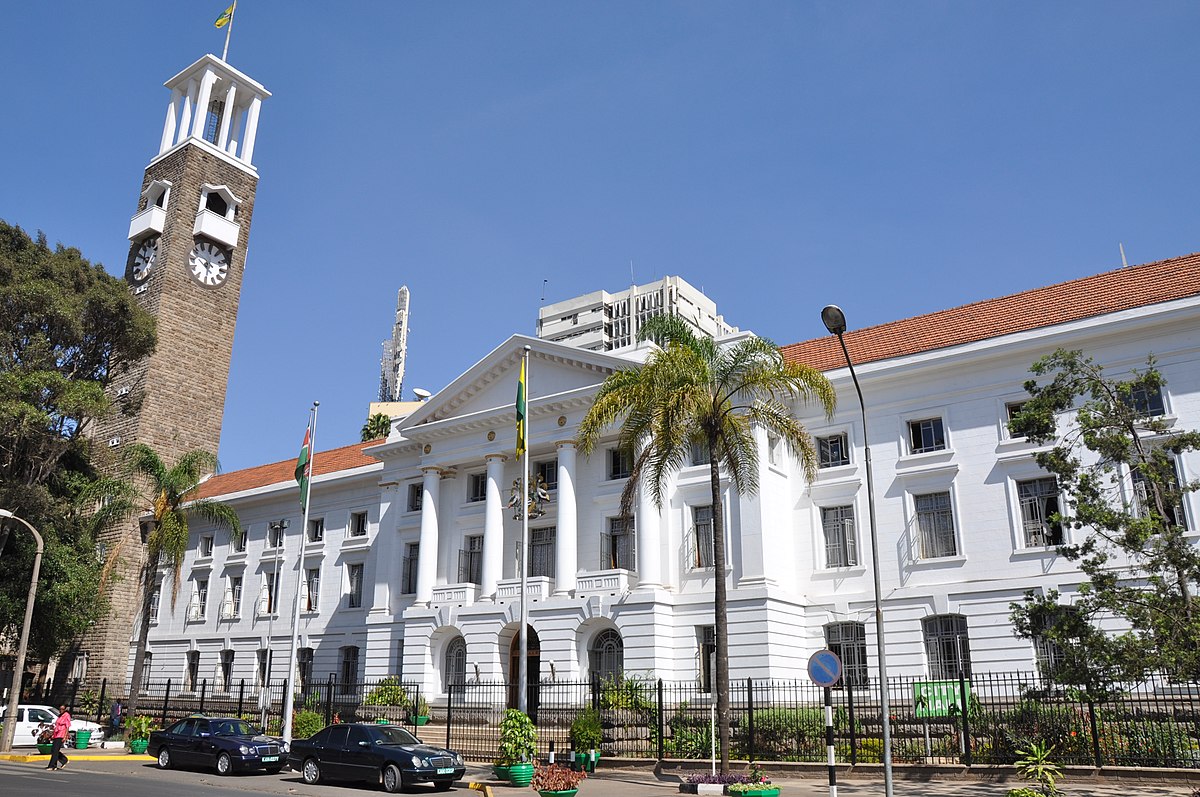
How Much Do Kanjo Workers Earn in Kenya and Other Related Information
Kanjo is a Swahili term used here in Kenya to refer to city council or municipal workers who play a critical role in maintaining public order in cities across the country but more so in big urban cities like Nairobi, Mombasa, and Kisumu. This class of workers is composed of but not limited to parking attendants, revenue collectors, market officers, inspectors, and other public officers charged with various administrative and enforcement duties. This article examines how much Kanjo workers earn, factors that affect their pay, apart from other aspects relating to their employment status in Kenya.
1. Who Are Kanjo?
"Kanjo," generally refers to employees of county governments responsible for a range of services such as:
- Parking Enforcement: Ensuring that motorists comply with parking regulations, apart from paying fees for using designated public parking spaces.
- Revenue Collection: Taxes, fees, and levies for services inclusive of markets, kiosks, and business permits. House-to-House Licenses, Advertisements, Health Licenses, Food Hygiene, Environmental Sanitation, etc.
- City Cleanliness and Public Order: Ensuring cleanliness in public; market management; observance of public health directives; control of hawkers or street vendors.
- Business Inspection: Inspection of businesses concerning, among other licenses, health requirements, and zoning laws.
2. How Much Money Do Kanjo Make in Kenya?
The remuneration for the Kanjo employees varies based on particular work, experience, and county that one operates from. The remuneration for Kanjo workers is determined by county governments they work for, upon receiving guidelines from Salaries and Remuneration Commission (SRC), an agency that decides compensation rates for all public employees in Kenya.
Here is a summary of how much money Kanjo workers normally make:
a) Entry-Level Salaries
Most workers in Kanjo start with the lower range in this pay scale, Ksh 15,000 to Ksh 25,000 a month, contingent on county and job. Workers in many positions, from parking attendants to market revenue collectors, make within this range.
b) Mid-Level Salaries
Workers with more experience normally fall between Ksh 30,000 and Ksh 50,000. Examples of such vacant positions include senior parking inspectors, market officers, and other supervisory jobs.
c) High-Level Salaries
Higher salaries are attracted by senior officers, managers, and specialized roles in city planning or public health enforcement. Salaries in this category range from Ksh 60,000 to Ksh 120,000 per month for top-tier officers working in counties like Nairobi that enjoy a higher revenue base and also face more complex urban challenges.
3. Factors Influencing Kanjo Salaries
Some factors influencing the pay scale of Kanjo workers include:
a) County Revenue Base
Those counties that collect a higher revenue, like Nairobi, Mombasa, and Kisumu County, would more or less offer a better wage due to the fact of an increased budgetary allocation to public service. On the other hand, counties that have smaller revenues may have lower wages. These are some of the reasons which may account for major salary disparities in county employments.
b) Job Role and Responsibilities
The nature of employment carried out by the Kanjo worker has the most impact on his earnings. Workers that carry out high-risk work, such as enforcement activities involving public health guidelines, zoning laws, or large markets, are paid more than those involved in routine revenue collection.
c) Experience and Length of Service
Like many public service jobs, service and experience are also gauged to determine pay. Employees of Kanjo that have served more years, been moved up the ranks, or have assumed supervisory positions will be better off than their newest employees.
d) Collective Bargaining Agreements (CBAs)
Other workers in county governments may receive an increase in salary through negotiated collective bargaining agreements. Negotiations between worker unions and the county government often increase pay, bonuses, and improvement in the working conditions of the employees.
4. Other Benefits and Allowances for Kanjo Workers
Apart from the basic pay, Kanjo workers are often entitled to various benefits and allowances which may include:
Transport Allowances: It is given to those workers who have to travel within their allocated zones for the implementation of the rules of parking or collecting revenues.
House Allowances: Workers may receive an extra amount that is meant to cushion the cost of housing. The amount varies depending on location; workers in Nairobi and other major cities receive larger allowances.
Medical Insurance: Most counties offer health insurance to their employees covering the medical cost of the worker and dependent family.
Pension Plans: For the public sector employees, like Kanjo, the pension schemes are in place to help save for retirement.
5. Problems to Be Dealt with by Kanjo
The Kanjo workers do their duties, yet due to many issues, they have to be faced while performing their tasks and livelihoods:
a) Harassment and Abuse
Kanjo officers, those more regularly involved in collections and enforcement, often receive high levels of resistance, harassment, and physical abuse on the part of the public, including those who do not abide by city laws, such as hawkers and unlicensed vendors.
b) Corruption and Public Perception
Kanjo workers are often accused of being corrupt, whereby some are accused of receiving bribes against their laxity in enforcing the regulations. This has dented their reputation, whereas not all Kanjo workers receive such bribes. In fact, many people do not trust them because of this reason, which may make their work a bit difficult in the process.
c) Lack of Equipment and Resources
In some counties, Kanjo officers lack equipment, such as communication devices or vehicles, to an extent that it is very challenging for them to effectively enforce the regulations.
6. Revenue Generation by Kanjo Workers
Kanjo workers contribute to county governments regarding income generation. From fees on parking to levies in markets, their work plays a great role in the county's revenue. Further, this is channeled into the financing of other very important public services such as health care, infrastructure development, and waste management.
Conclusion
The salaries of Kanjo workers in Kenya differ with regard to the job description, experience of the worker, and county in which they work. This keeps urban areas running smoothly, keeps order, and maintains regulations and, therefore, revenue for county governments. Despite the harassment and public mistrust challenges, Kanjo workers still play a crucial role in maintaining Nairobi and other cities functional and clean. As the counties are working on improving their revenue collection and management processes, hopes that the working conditions and salary for the Kanjo workers will continue to improve are very well in order.

